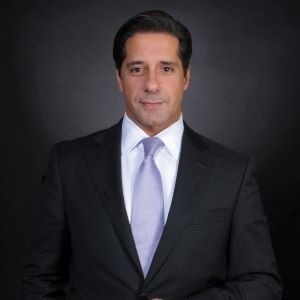At a time when superintendent turnover continues to reach unprecedented levels, leaders must ask themselves, “What does it take to be successful in 2023?”
Alberto Carvalho, superintendent of the second-largest school district in the country, Los Angeles Unified, would tell you to serve so aggressively, so boldly, that you might anticipate being fired. While it may sound outrageous, the reality is that if you can’t produce meaningful results within your first year as a superintendent, “the train will leave you at the station.”

Carvalho, who has led school districts with student enrollments exceeding 300,000 for the entirety of his career, says much of his decision-making is built upon a make-it-or-break-it mentality.
“Be so bold in your approach to work that you actually invite termination for being so passionate,” Carvalho says. He would frequently tell his boards at both Miami-Dade, where he previously served, and L.A. Unified, that he “was going to try every single year to get fired on the basis of doing something that is so strangely good for kids.”
If you’re playing it safe backstage as a leader rather than standing at the edge of the stage where everyone knows what you’re doing, he describes, your students will not receive the education they deserve.
However, you shouldn’t overestimate your reform efforts.
“You’re not going to have 10 years. I’m an anomaly,” he says. “You’re not going to last 10 years. If you cannot prove compelling results within the first year and then augment them within the second and third years.”
This is the message Carvalho will deliver to members at the District Administration Leadership Institute’s Executive Cabinet Retreat in Cambridge, MD, in July, as well as what he believes are the top leadership traits emerging superintendents must grasp in order to succeed in what he refers to as the new age of the superintendency. Above all, he values being a data-driven instructional leader.
Join Dr. Carvalho for DALI’s Executive Cabinet Retreat
“Don’t subscribe to the fact that you can easily delegate impactful, systemic, global instructional decisions,” he says. “I don’t delegate that.”
Instead, use data in a way that “forces, invites and stimulates” your district into bringing research-based best practice ideas that have been implemented successfully in other districts.
Secondly, Carvalho urges leaders to simply be their best selves in a highly politicized environment.
“Know who you are and operate on the basis of science, reason, research, and best practice rather than political opinions about the work, mainly from those who have never done the work themselves,” he says.
In addition to these critical leadership skills he believes superintendents must learn, he says there are five principles he constantly offers to leaders that are proven to help them turn their school systems around.
1. Don’t treat everyone the same
“Develop a budget and school management protocol that differentiates investment, oversight and accountability on the basis of performance,” he says.
2. Tie funding to reality
“Develop strategic investments within necessary accountability where you’re not treating all schools, all students the same,” he says. “You need to provide additional resources in exchange for additional accountability driven by fair progress monitoring tools.”
3. Stop debating choice
“Choice has come. It’s here,” he argues. “That tsunami is already known. You cannot duck under it, you cannot outswim it, you cannot outrun it. You’ll die. How about this? Ride the top. Outcompete. Outperform. That’s how you win the battle.”
This means you should offer “publicly delivered choices within your district,” he says. Otherwise, students and families will look elsewhere for options.
4. Reward teachers
Set fair demands as far as performance is concerned. For instance, in both Miami and Los Angeles, Carvalho won 21% increases in teacher salaries. Doing so will ensure your teachers are motivated while feeling respected by their district’s leadership.
5. Share your story
“Tell your story,” he says. “But don’t tell your story before you have results.”
“We as school leaders are not very good at telling our story,” he adds. “Rebrand your district, refashion your district and re-message your district.”
Finally, for those who just entering the superintendency or maybe transition districts in the coming months, Carvalho recommends that you don’t let yourself be intimidated by the size or the scope of the district. Instead, do your homework ahead of time. Understand the needs and the critical areas your community is relying on you to address and develop a game plan early.
Before coming to Los Angeles, he says he already had a solid understanding of the district which allowed him to hit the ground running on day one.
“I knew what the finances were. I knew what the educational profile was. I knew who the advocacy voices were. So how do you prepare? It’s as much about having the knowledge of strategy and the skillset for the work as it is about having strategic understanding and tools in the toolbox and actions to deal with the condition that you might be facing.”
Register for DALI’s Executive Cabinet Retreat!









